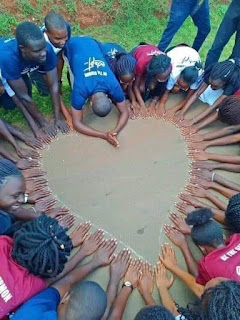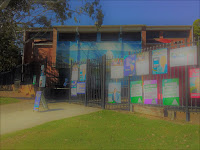 |
| Ubuntu |
Each has left a legacy of wisdom and grace.
bell hooks often spoke and wrote about the connections
between racism, patriarchy, economic injustice, and poverty. She saw the
connections clearly and spent much of her life trying to show them to the
world.
Desmond Tutu often spoke and wrote of the connections
between all of us. He, perhaps more than any other South African, brought the
concept of ubuntu to the rest of the world. The Zulu concept of ubuntu,
Tutu described as:
“The
philosophy and belief that a person is only a person through other people. In
other words, we are human only in relation to other humans. Our humanity is
bound up in one another… This interconnectedness is the very root of who we
are.”
We see here a similar message. Desmond Tutu describing
our interconnectedness, and bell hooks reminding us that ignoring our
connections gives rise to social classifications and thence the intersection
between oppression.
Perhaps the most radical offering that each of them
gifted to the world was their understanding of the role forgiveness and
compassion could play. Radical – because forgiveness and compassion are often
seen (by all sides of the political spectrum) as “soft options.” Neither of
these two pillars of humanity could be thought of as soft. Let’s hear from bell
first.
“For
me, forgiveness and compassion are always linked: how do we hold people
accountable for wrongdoing and yet, at the same time, remain in touch with their
humanity enough to believe in their capacity to be transformed?”
This is a truly radical question, for it shifts us
away from a good/evil, right/wrong, me/you, us/them dualism, towards a
recognition of our common humanity (faults and all.)
Desmond Tutu grappled with exactly this question
throughout his long life (he died at age 90.) His penultimate book, published
in 2015, was a collaboration with his daughter – Mpho – titled The Book of
Forgiving.1
In that book he outlined a four-fold path of forgiveness,
contrasting this with the Revenge Cycle – a never ending continuing cycle of
violence, harm, revenge/retaliation, violence…
For Tutu, forgiveness was not just a practice with
personal or familial benefit; it also has benefit at world and global level.
Yes, within days of one another the world has said farewell
to two of its wise elders.
I will leave the final words to Desmond Tutu.
“We can’t create a world without pain or loss or conflict or hurt feelings, but we can create a world of forgiveness. We can create a world of forgiveness that allows us to heal from those losses and pain and repair our relationships.”
Note:











